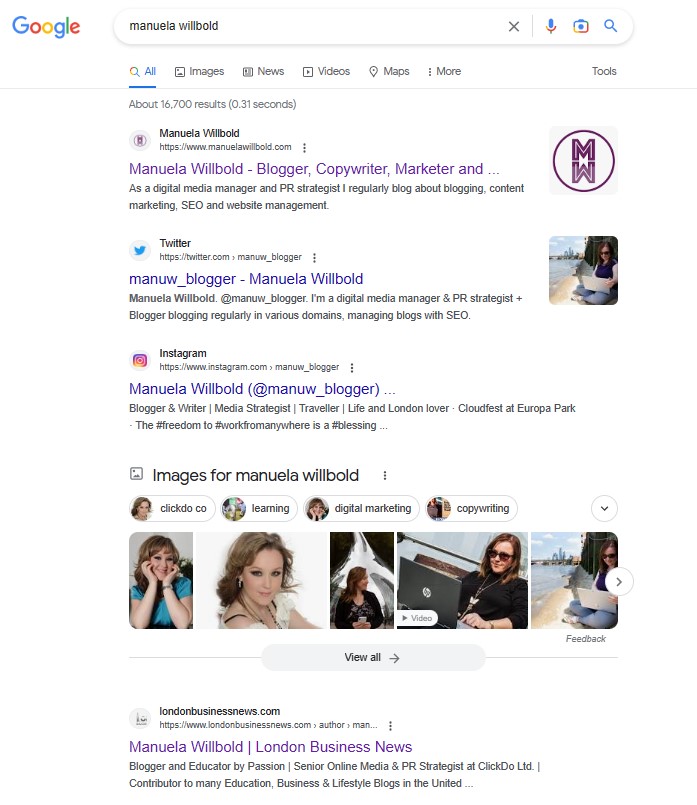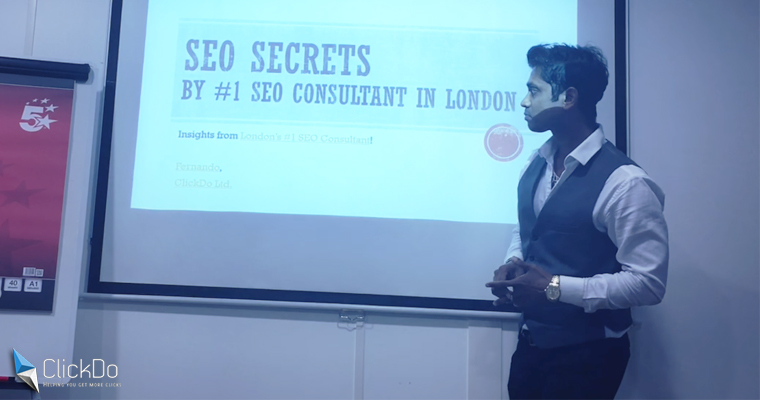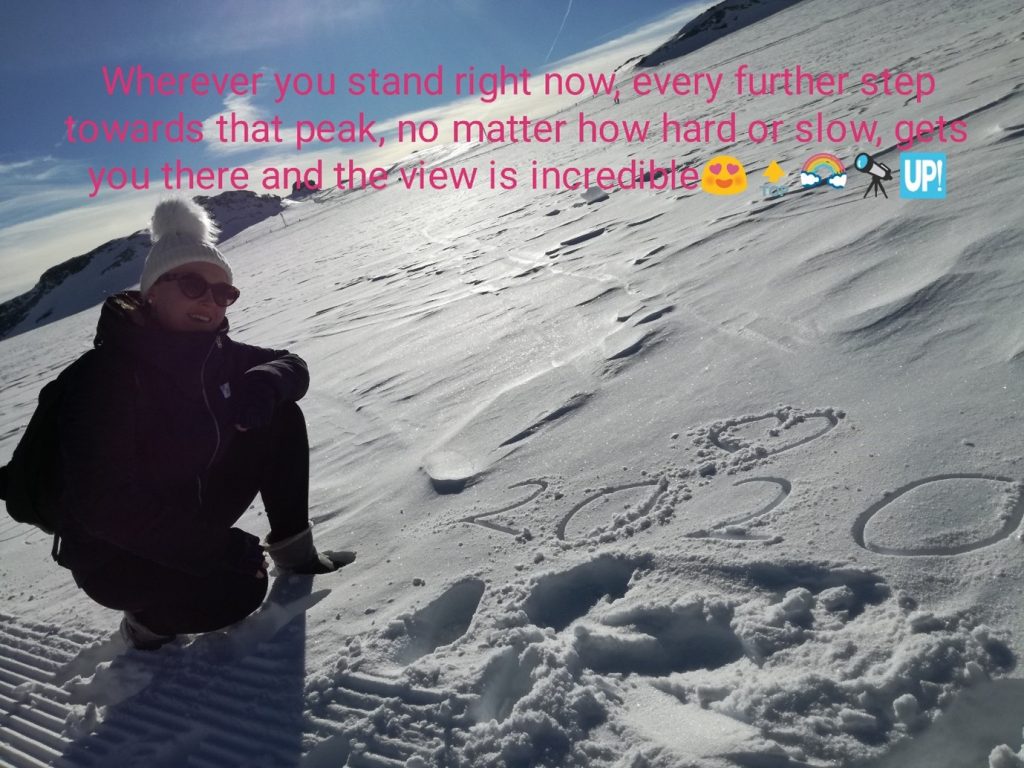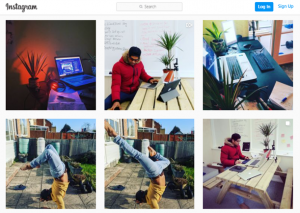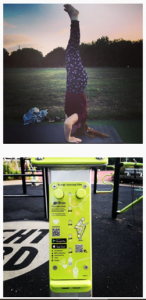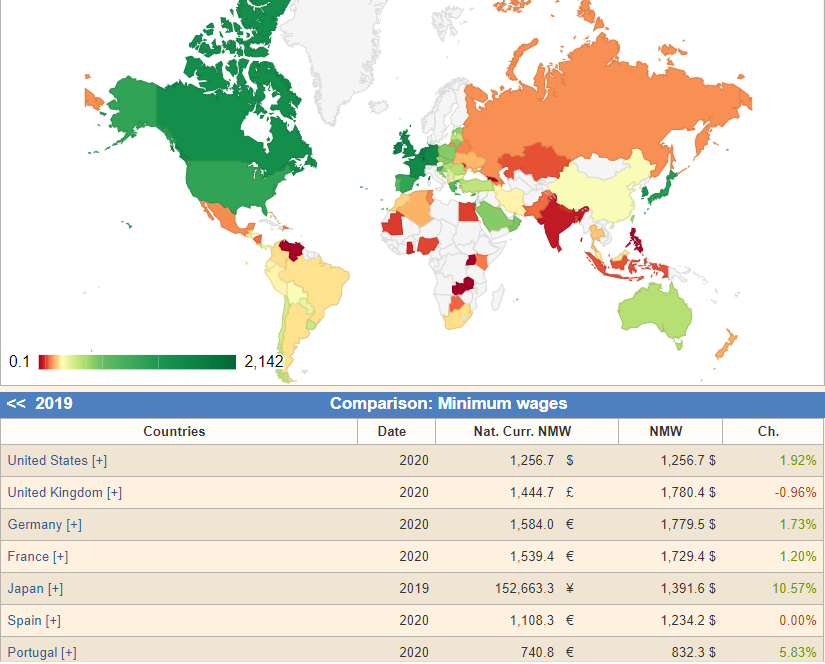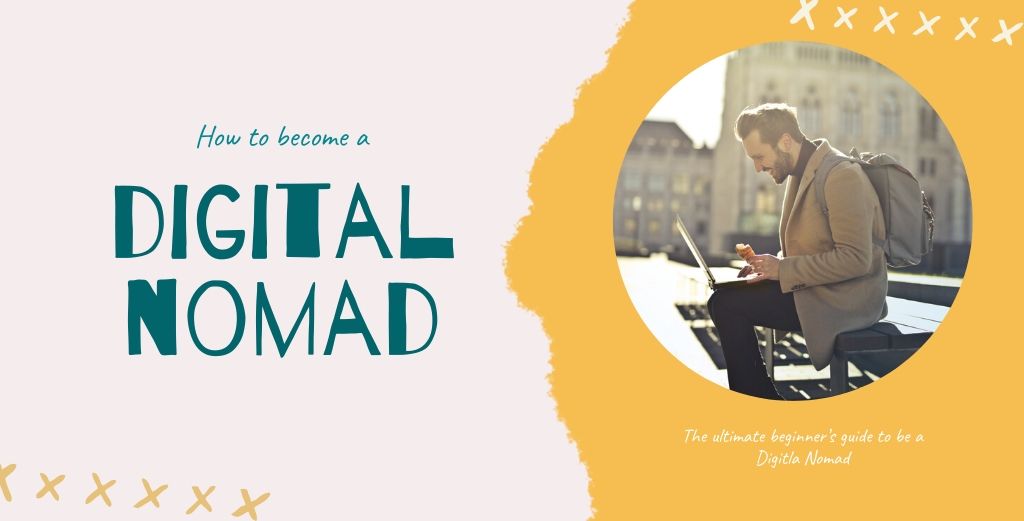
How to Become a Digital Nomad? – (The Ultimate Go To Guide)
Understanding how to become a digital nomad can be an important first step towards living the digital nomad lifestyle.
But first let’s get to the bottom of the subject.
Do you want to know what a digital nomad is?
There are over 40,000 monthly searches on Google for the keyword “digital nomad“, and I found that more and more people are trying to become a digital nomad. Still, they are not clear about what a digital nomad is in fact or what exactly digital nomadism is.
What is a Digital Nomad?
A digital nomad is one who is location independent and free to travel around the world, only relying on the internet and mobile phone or laptop. Digital nomads are those that make use of the internet in all its various capacities to earn a living to support their nomadic lifestyle.
Are you ready to embrace working from your phone or laptop as your home office? Well, consider joining several industries that embrace remote work. Working as a digital nomad allows you to work from any location in the world while getting paid online. However, there are certain facts you need to know before you can get started to ensure you don’t get into legal or financial trouble.
This is what this guide will cover so you are covered:
- personal skills and skills examples for work skills required to become a digital nomad,
- freelance or online work jobs and online job sites for the minimum income required to travel,
- best places for remote work,
- tips to manage your finances,
- travel recommendations,
- the best digital nomad success strategies with examples.
Are you confused about how to go about becoming a digital nomad? If you are contemplating joining the digital nomad lifestyle, you must have all the necessary information before starting.
Do you want to be location independent while working without having to commute to your workplace every day?
Do you enjoy working from the comfort of your home on a computer or mobile device online?
If you’ve answered all the above questions with yes, then you’re the right candidate to becoming a digital nomad.
See how SeekaHosters do it in London:
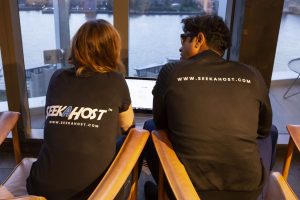
And in India:
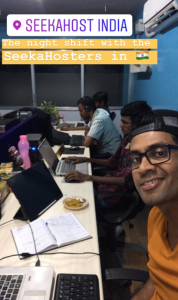
You can also join our Laptop Business Lifestyle Group and Laptop Lifestyle Digital Nomad Group on Facebook to get more insights.
As a digital nomad, you have the option to work for yourself as a freelancer or to work with a company offering you all communications and tasks to be done online. They remotely work from their homes, coffee shops, co-working spaces, and anywhere you can find a good internet connection and suitable space to work, even by the pool.
How to become a Digital Nomad? – What it takes to start out as a Nomadic Remote Worker
1. List of Key Skills for the Digital Nomadism Training
To gain key skills to become a digital nomad you can check out the resourceful expert courses on the e-learning platform and blogging university https://university.seekahost.com/.
There are digital marketing courses covering many aspects of digital life, like the best online blogging courses, SEO training courses, and many more. Gain some key skills for your CV through distance learning to help you survive in the digital world. Join the digital nomad training, which will enable you to make money while working and studying.
Professional Skills you should get are:
- Digital marketing
- Freelance or SEO content writing
- Blogging
- SEO
- Analytics & Data Entry
- Social Media Marketing
- Photography & Web Design
- Web Development
- Domaining
- Online Teaching
- Foreign Languages
Personals Skills for travelling around the globe:
- Self Confidence
- Self-discipline
- Time Management
- Networking
- Positive Mindset
- Strong organisation, problem-solving & strategy skills
- Resilience
- Job Crafting

Skills Examples for Work Skills:
Digital Entrepreneur & Visionary Fernando Raymond lives a digital nomad life by travelling around the world and working online as a blogger, SEO consultant and Web Consultant, online course instructor and eBooks author.
He has built both of his companies (ClickDo Ltd. and SeekaHost Ltd.) by gaining some of the above-mentioned skills such as SEO, blogging, web development, analytics and domaining. You can read all about his digital entrepreneurship journey in this article:
These professional and digital skills he partly taught himself through online tutorials, courses and DIY, have helped him build two companies in the digital industry, that employ 25 remote workers from about three continents, and he plans on hiring more in the future. This way Fernando is getting more digital nomads to join the digital tribe.
How does Fernando do it?
He does online marketing and social media marketing both for his businesses and his clients and has been doing it for about 7 years, showing that this can turn into a long-term career if you’re truly passionate and committed. You can check how he manages Facebook groups and pages, paid ads on social media and paid Google Ads in the ClickDo case studies.
Fernando grew the SEO Tribe Facebook group with regular posts about his SEO work for his clients. He shared blog posts, case studies and more here and built a network relevant for his niche.
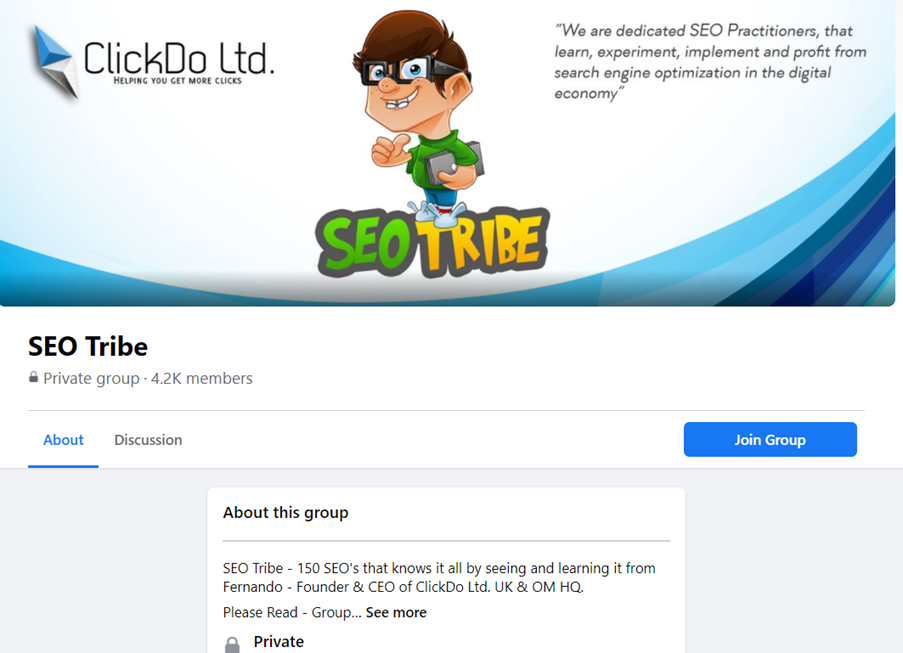
This helped him grow the number of followers to over 4000 on the ClickDo Facebook page. On Facebook and Instagram, he invests in paid ads at times to boost certain business news. He also uses paid Google Ads to increase the organic traffic, which he drives with his SEO skills, so that his websites gain authority on the web and of course more visits from potential customers.
Fernando has published several online courses like the SEO Training Course, which you can find at the SeekaHost University. He has also published several eBooks about SEO and much more in the Amazon Kindle store and manages his online presence through various channels like his personal blog, social media etc. as you can see when you search his name on Google:
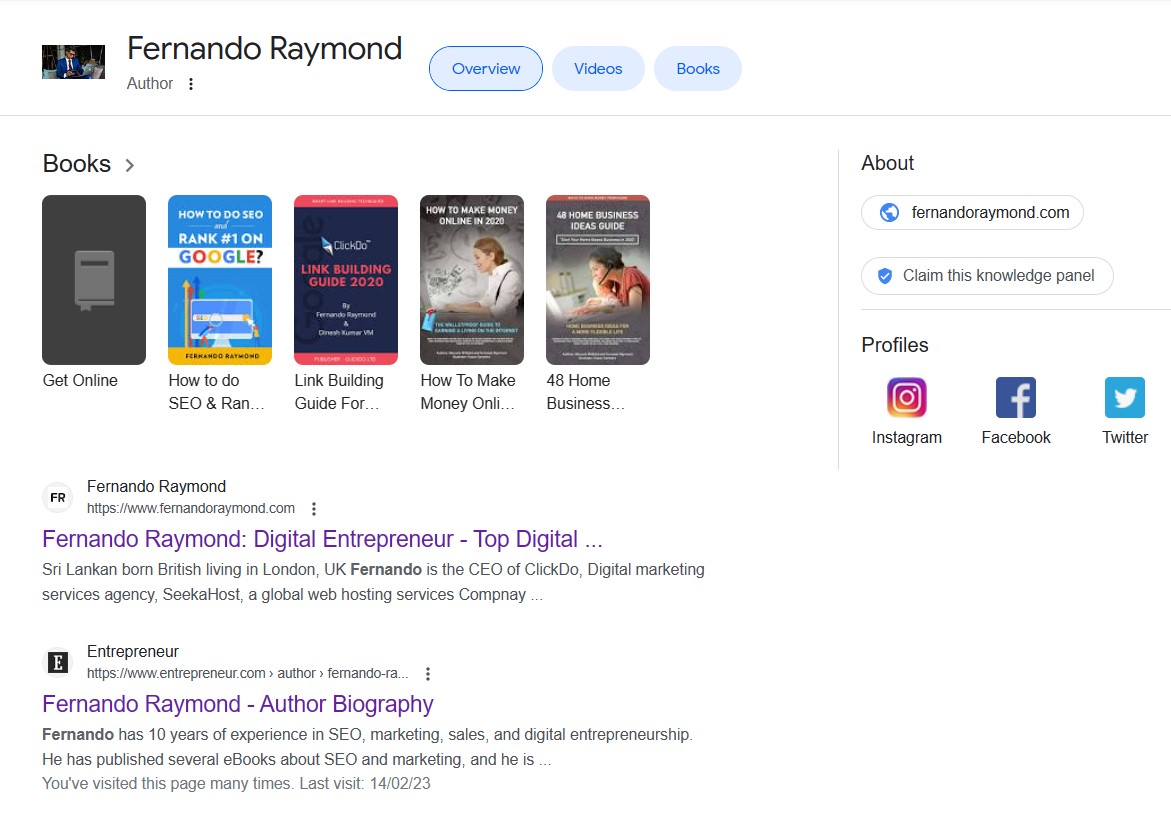
As you can see it is vital in the digital era to establish an online profile that reflects the many facets of a person and their individual personality. This is why the digital skills required will help any freelancer or online worker to gain more exposure on the internet.
On Fernando’s blog he regularly shares his expertise on SEO, web hosting and blogging as well as how he does yoga and meditation to keep a good work-life balance. Check out his personal blog for more insights at fernandoraymond.com.
Digital Nomadess & Storyteller Manuela Willbold started out with a side hustle as a content writer while being a full-time teacher before she

established herself as an online media strategist and blogger working full-time for ClickDo Ltd.
Learning digital skills like SEO, WordPress management and blogging, web content writing and social media marketing helped Manuela with starting to work for digital marketing agency ClickDo part-time. While building and managing blogs and doing web content writing, editing and digital marketing for ClickDo and the clients, she earned a side income and gained more professional skills through the online courses and the work itself.
How does Manuela do it?
She first set up the UK Education Blog, which is all about her biggest passion: education. Through this blog she learned all the WordPress blogging skills and website creation skills along with the blogging courses at SeekaHost University and was able to grow it with the SEO skills she learned from Fernando’s courses.
Because the UK Education Blog grew, and she started to get guest posting and advertising enquiries she decided to work on more blogs and eventually charged fees for guest post publications and their marketing and SEO optimisation. Sponsorships are also an option she uses to generate a passive income. You can see some more of the blogs she currently manages where guest posts from guest bloggers can be published as well:

Manuela has also created an online course about SEO copywriting and published three eBooks via Amazon Kindle, which all create another stream of passive online income. She showcases these on her personal blog manuelawillbold.com:
As you can see, the cyber skills she learned enabled her to move her professional career online, leaving the teaching profession to become a full-time remote working digital nomad.
Over time she has built her online presence with her blogs and social media accounts as well as author accounts as a guest writer and book author. When you search for her on Google you will see this:
It is important for every digital nomad wanting to be visible in the best way on search engines and online platforms to have a grasp of the work skills required to establish a successful online presence. Once you know how to build your online presence to a respectable level, you can pick your favourite digital nomad job or career. Identify your talents, interests and passions and combine them with the online job opportunities. Both your professional and personal skills will help you do this.
Check out our guide about media placements to learn more about how to build your personal brand:
Skills Examples for Personal Skills
Living a nomadic lifestyle brings with it certain challenges and to be equipped for them, you will require a set of personal skills apart from your work skills. Based on the personal skills list shared earlier, you can see how these vital skills can help any digital nomad handle the difficulty they may encounter on their nomadism journey
Self-Confidence, Resilience and Positive Mindset
Fernando Raymond has written an article about his journey on becoming more confident: How To Be Confident: Tips (Lee Bannister Method + 30 Ways) For Boosting Confidence | ClickDo™
In it he explains: “As a business owner in one of the most competitive markets in the world, I had to find ways to put myself in front of the competition and sell. Back in 2014 when I started the game of entrepreneurship, I did not have the confidence I have today. I would stutter in a conversation with a stranger and would hesitate to open up and introduce myself to someone new.”
Most people are self-conscious and often doubt their ability and talent. This can be an obstacle when pursuing a new career or life. Whether you’re becoming a digital nomad through a remote work employment with a business or organisation or you start freelancing, you will have to believe in your skills and sell them to people as services or products. A personal skill that can enable and foster this process is resilience and mental strength.
Mental Strength is the capacity of an individual to deal effectively with stressors, pressures and challenges and perform to the best of their ability, irrespective of the circumstances in which they find themselves (Clough, 2002).
You can find thousands of books and guides with lifehacks and Fernando gained his self-confidence and resilience from listening to American entrepreneur and life coach Tony Robbins who inspired him to work on his body language, public speaking and presentation skills and mindset about himself. He then met Lee Bannister, who is a leading confidence coach in London, as Lee approach him to ask for SEO consultancy for his coaching business. His materials and videos inspired Fernando to grow his self-esteem and equipped him with strategies to be more confident in his business videos. As a start-up entrepreneur in 2015 Fernando had to record videos to present proposals to get clients online. You can check out his free program “7 ways to be more confident” online for yourself and start your transition.
A lack of confidence and positivity leads to keeping yourself hidden, and you miss potentially life-changing opportunities! Fernando is certain that without his confident videos and presentations, he wouldn’t have been able to grow his two online businesses as he did. He was also invited as a speaker to several workshops and online webinars and you can find the recordings on the ClickDo YouTube channel.
Building a positive mindset is equally important as Manuela discovered on her journey to becoming a blogger and online media strategist, leaving a secure and lucrative teaching role in a prominent private school in London. Before she was ready to take the leap and become a full-time digital nomad, she had to build her resilience through Rob Whitley’s three resilience-enhancing strategies:
Skill Acquisition
Acquiring new skills was a key part of Manuela’s transition in building resilience, as she started to feel more empowered and competent about what she could offer and do in her new role. She learned how to blog with WordPress and how to do SEO through online courses at the SeekaHost University and through self-learning. She joined several groups on social media while acquiring new skills, which also cultivated resilience, because she realised that many people went through the same.
Goal Setting
Developing and planning goals strategically as actionable steps was another important aspect of her nomad transition. Visualisation of her goals through writing them on a board and in her planner every day, every week and every month gave her a roadmap to where she wanted to go and how to get there. Manuela read Tim Ferriss’ book “The 4-Hour-Work-Week” where he encourages the reader to set goals as they read along. Manuela did this to build her vision of her new career. This gave her a deeper sense of purpose and connection with herself and her most inner desires. These motivated her to work extra hours after a long day of teaching and achieving the goals step by step made her realise her potential and strengths. She describes this in more detail in her content writing business article. She also posts inspiring quotes on her social media channels like Instagram to motivate others and share her successes.
Controlled Exposure
According to Rob Whitley “controlled exposure refers to the gradual exposure to anxiety-provoking situations and is used to help individuals overcome their fears”. Public speaking, a useful life skill that evokes fear in many people like Manuela, needs to be trained. Exposing themselves online via YouTube videos or social media videos or to a small audience of one or two people can help decrease their fear and increase their confidence over time. Manuela practiced this with the help of ClickDo and she also got involved with Cognitive Behavioural Therapy. She sometimes publishes videos and interviews on the SeekaHost University YouTube channel and has more interviews lined up.
Self-discipline, Time Management, Organisation, Problem-Solving & Strategy Skills
A digital nomad obviously loves their freedom. However, when it comes to performing tasks and work that pay the bills, one needs to be organised and have a plan. Clients or bosses will not be happy to hear that their project is delayed or that outstanding tasks will take longer than anticipated. They will have the expectation that things are dealt with professionally and effectively. And you should have that expectation for yourself and your work. To deliver this, self-discipline is key.
In psychology, self-discipline is also known as self-control or willpower and is defined as “effortful regulation of the self by the self” by Duckworth, 2011 and as “the ability to suppress prepotent responses in the service of a higher goal…and that such a choice is not automatic but rather requires conscious effort.” by Duckworth & Seligman, 2006.
With a conscious effort we can manage our time and plan the tasks according to urgency and priority. We can set out a timetable and organise our day accordingly. Nowadays we also have many automation tools and management apps that can help us with getting organised and saving time.
A study by Muraven and Slessareva’s (2003) shows that motivation plays a key role in self-discipline: Study participants were more likely to persist at a task when they believed doing so would help others, or when they were told they’d be paid.
Obviously for any digital nomad the motivation is to live and fund a flexible and relatively free life while doing the work they love. Naturally, if you choose a field that you love and are passionate about then you won’t have to force yourself to do your work every day. Just like Fernando and Manuela, you will not be able to stop actually. You will be inspired by all your ideas and what you discover on your journey.
However, everyone develops habits that may not be best for what they have set out to achieve. Charles Duhigg, the author of the book “Power of Habit”, shows this by doing an experiment on himself. He tries to break the habit of buying a cookie every day to lose weight. The motivation is to look and feel better and healthier. He observes which cue triggers his craving and learns that it is more the socialising in the cafeteria rather than the cookie itself. Based on that he changes his routine by taking a walk with a friend when the craving occurs. Through that he has exchanged his bad habit for a good habit.
Fernando and Manuela have worked on changing their habits and routines while working from home or other remote places. To remain productive and healthy they have established routines that involve daily exercise, yoga and meditation to refresh their minds and improve their focus on their daily goals and tasks. Fernando shares his tips on his digital entrepreneurship blog and so does Manuela on her personal copywriter blog:
What is a Digital Nomad and How to Live like One
Set up Home Office at brilliant London Coworking Spaces
Via their social media you can also see some of the exercises and goals they work on:
To increase their productivity and effectiveness for work they follow some of the guidance in Cal Newport’s book “Deep Work” and Tim Ferriss’ book “4-Hour Work Week”, but they have developed what works best for them. Here are some productivity examples:
- Limited social media use at dedicated times in the day: while working on tasks they don’t interact with any social media platform and they will only share and like posts in the morning or evening after the main tasks are completed. The danger to get carried away is too great and not worth the time spent. They have also found some AI tools very useful for a successful digital detox.
- Utilizing time in the best way possible to achieve set goals: there are moments in every day where we can get things done, e.g., during a commute, while on the phone or waiting somewhere for a doctor, train, food etc. People always complain about not having enough time, but if you closely look at those periods where you don’t really do anything, you can maximise your time.
- Analyse the quality and return of your work tasks: Organising your emails, filling out excel sheets or spending hours designing an image or a blog page can be wasteful, if it does not give you the return that makes it worth investing this time. It is of course important to make a spread sheet of useful contacts, but it will only be worth your time if you use it for effective email marketing that will increase your sales or conversions. You can read more tips on workday efficiency on the ClickDo Business News Blog.
- Ways to incorporate Time Management: Time is a finite resource which is crucial for one’s ability to be productive. With the latest innovations in mind, one way of being more efficient is the use of time-tracking apps. These apps can give you more insight into how and where you spend or waste your time. They will help you filter out all the major timewasters and help you organize yourself a lot better. Making a to-do-list with the most important and urgent tasks can provide guidance on how to use the hours most effectively. Multitasking can give you a false sense of productivity because spending one hour doing two separate tasks, the equation isn’t exactly like if you spend half an hour doing one task and then switching onto the other task. This is because your productivity while multitasking is closer to about 35 percent per task compared to 50 percent, if you just focused on one task at a time, but fully. Some psychologists suggest that multitasking tends to increase one’s feeling of anxiety so it should be avoided. Read more about productivity hacks and laws of productivity on the UK News Blog.
- Organising and delegating tasks can help with focusing on what really matters: Fernando manages all his teams remotely and it is therefore crucial for him to organise and delegate tasks as effectively as possible. He usually makes a plan for everyday and communicates with his staff in the morning about the outstanding tasks that they should focus on, which are also tracked inside the internal HR management platform. Being organised is key as a business leader or manager as the success and ROI comes down to how all the resources such as staff, tools, outsourcing etc. have been utilized to achieve the best results.
For a digital nomad it may also be helpful to learn more about how to make their environment more efficient and productive wherever they work from. The ClickDo and SeekaHost authors have published a few articles around this subject full of tips and tricks to design a work environment that works best for you.
7 Steps to Transition from an Office worker to a full-time remote worker
Networking
In the global online community, it is more important than ever to reach out to others, to collaborate and to communicate. Who you know is extremely important. But networking isn’t just about dropping names; it’s about finding ways that you can help and add value to the lives and work of others. Some of the most successful individuals are the best networkers, because they don’t just focus on themselves, but on how they can help others without the clear intention of getting something back.
Building your network is about building quality relationships, not selling. You want anyone in your network to trust you and like you. So, don’t lie, don’t disappoint, don’t make empty promises and be yourself and authentic. This is what Fernando always adheres to and he would often attend business events that are great for networking in London. He understands that word of mouth plays a huge part in finding new clients as many of his previous clients, who trust him, have recommended his services on.
don’t disappoint, don’t make empty promises and be yourself and authentic. This is what Fernando always adheres to and he would often attend business events that are great for networking in London. He understands that word of mouth plays a huge part in finding new clients as many of his previous clients, who trust him, have recommended his services on.
Getting reviews is very important for your online presence as here you can showcase the people you are connected with, you have worked for and with and who you have partnered with too. Fernando favours video reviews and you can see why on the ClickDo reviews page.
People and endorsements can bring a huge value to your business or work. Manuela interviews her friends who have built freelance businesses themselves to share their expertise with more people out there.
Translation Freelance Home Business Journey
Photography Freelance Business Journey
That way they share links via their online presences and reach a wider audience. Especially in the digital world, networking is everything and is therefore a key skill.
The same applies for so-called “Netiquette” or “Internet Etiquette”, meaning how you behave and communicate on web platforms. Here are some things to keep in mind that will certainly help with your online networking:
Always be Respectful
No matter who you communicate with online and where, it is absolutely necessary to always use respectful language and avoid name-calling, cursing, offensive language and opinions and so forth. This applies for any social media site, forum, chat room, or email or text message, even if you think it can’t be traced back to you. It always certainly can and may harm your reputation. Manuela and Fernando always tend to share positive and encouraging news and concepts on social media because people mainly use such platforms for entertainment. People are more likely to engage in constructive exchanges that can help others. You will see this in many Facebook groups happening such as one of our laptop lifestyle groups.
Sharing (With Discretion) is Caring
Everyone all loves a bit of sharing, don’t they? And especially on social media it’s a very popular technique to gain traction and exposure. However, when sharing content, one should consider whether the sources are reliable and trustworthy. You should also ensure that those shares don’t offend anyone connected with us. This can be difficult to control, but by ensuring the language and content is respectful in its nature, you should be able to back yourself. The same goes for uploading photos or videos that include other people, public spaces or companies and organisations. If you tag people or organisations on social media, others can access pictures of them unless they have adjusted their privacy settings. The same applies for emails. You shouldn’t share or forward people’s email details without their consent.
Fact Check Before Reposting
Try to avoid sharing hoaxes, urban myths and fake news as they mislead your followers and waste their time. If you aren’t sure of the facts, research them first via a search on Wikipedia, Google or snopes.com. Keep in mind that many viruses are circulated via chain letters and scams. Forwarding them will not bring you good fortunes, just bad karma and you may lose your authority.
Update Online Information regularly
Don’t leave inaccurate information online just because you can’t be bothered to update your website, online profile, Facebook Page or listing. If something about you and your business or work changes, update this information on all your online presences as people will only use the information they find. Misleading your visitors can cause anger and frustration and will affect your business or performance and reputation. People will only work with someone that is organised and reliable.
Keep in Touch
You may accumulate thousands of followers and email contacts over time while you grow your business or work connections. To manage these safely and effectively is key to your success. Saving email contacts in spread sheets with notes about the relationship you have with them or the reason for your connection can help you only send them relevant bulk emails. Email automation tools can be a huge time saver here as they can help you categorise contacts and segment them as well as automate specific emails such as notifications, updates, wishes etc. You can also use some professional email templates and track opening rates and more. For your social media followers, you can use interest groups as categorisation, so you address them only with relevant news for them. #Hashtags work in a similar way.
Job Crafting
When you start a job somewhere, the job description may tell you what is expected of you, but it is not written in stone. Your personality is a huge part of your role and making thoughtful changes to the design of a job to make it more engaging and meaningful can do way more good than harm. That’s why job crafting has emerged as an important element of work satisfaction and overall happiness.
There are generally three elements of job crafting:
Task crafting: involves altering the type, scope, sequence, and number of tasks that make up your job, which has already been covered in the organisation and management skill section.
Interaction crafting: involves altering and adjusting whom you interact with in your work, which has already been covered in the networking section.
Cognitive crafting: involves modifying the way you interpret the tasks and/or work you’re doing, which has already been covered in the organisation and management section.
Using all three elements to design your dream job, dream role or dream business, can provide more:
- Job or work fulfilment
- Job or work satisfaction
- Job or work purpose
- Job or work motivation
Fernando and Manuela experience this every day in their lives as digital knowledge workers. And every digital nomad longs to create the live and work they envision. Therefore, the skill of job crafting should certainly be considered by everyone seriously pursuing an online career or career transition.
Here are some examples of how Fernando and Manuela perform job crafting at ClickDo:
Task crafting: no day is ever the same in the life of a digital nomad because things move fast in the online world. This means both must adapt tasks or routines according to their goals and urgent challenges or opportunities that pop up. Say, the legislation changes and now all the websites require a certain policy. Then Manuela will do the research and write the content and Fernando will liaise with the developers to get them live. Or they get enquiries they’ve never had before such as a collaboration with an events company. They will have to evaluate what they can offer and then plan and discuss the T&C’s.
Interaction crafting: as CEO of two online businesses and an online media strategist they communicate with people from various backgrounds and industries. They also reach out to people they have never spoken to so that new opportunities arise. They connect with people on social media and via many other channels. But what drives their interaction crafting is their goal. If they’re looking to get mentions, they will reach out to bloggers, authors or journalists. If they’re looking for advertisement or SEO clients, they will communicate with business leaders, managers or marketers.
Cognitive crafting: this is the fun part of job crafting. Here you can be very creative and visionary. Fernando started out with SEO consultancy, however, along the way he discovered that he could also offer web hosting with his team. He needed web hosting for all his PBNs and that led him to start a completely new business. So, one career or job can lead to many other new skills and ideas for several other opportunities and options. Manuela felt limited in how she could change her teaching role and therefore moved into blogging where she combined her teaching with writing skills. She created an education blog that focused on her interest in e-learning and Ed Tech.
Now that you know about all the personal skills that can benefit any digital knowledge worker throughout their digital career, let’s finish with a quote from the book “Black Box Thinking” by Matthew Syed, where the Dyson Hoover inventor James Dyson is mentioned saying this about creativity:
“People think of creativity as a mystical process. The idea is that creative insights emerge from the ether, through pure contemplation. This model conceives of innovation as something that happens to people, normally geniuses. But this could not be more wrong. Creativity is something that has to be worked at, and it has specific characteristics”.
Syed claims in his book that failure is a necessity to learn and improve. The same applies for creativity and innovation. So, don’t be afraid to fail, be afraid to never learn, grow and craft.
Now that you’re equipped with most skills needed to become a digital nomad, see what awaits you in the digital world to make a start.
Lucrative Digital Jobs to Fund Your Nomadic Life
SEO Specialist and Consultant
One of the jobs you can do as a digital nomad is to become a Search Engine Optimization specialist. Because this skill is anyway on the list of key skills for digital nomads, you may as well use it for your own benefit. It can be applied to your own websites as well as provided to clients against a fee. Skilled SEO experts are really valuable in the digital world today, as they work on websites and make sure they rank for relevant frequently searched keywords, leading to a wider audience and increased sales. For SEO tuition and certification you can check out the SeekaHost University SEO course online for free.
Affiliate Marketer
As a digital nomad, you can decide to become an affiliate marketer, especially if you have a successful blog. An affiliate marketer is one who refers customers to a certain product or service and gets a commission every time sales are made via their affiliate link or code. As an affiliate marketer, you can achieve great returns which mostly roll in passively. Just see how these top affiliate marketers do it daily.
Social Media Manager
This is also a job you can find yourself doing as a digital nomad as it involves you working with you are already familiar with. Big companies often hire their social media personnel to work for them or online marketing agencies whereas small companies often hire freelance social media managers to help them grow online and manage their accounts. As a social media manager, you might be required to design social media marketing campaigns, create content and posts and schedule them via automation tools, create graphics or outsource them, respond to messages and comments to build a good following and to ensure that the online presence is regularly updated. You can learn more about Facebook Remarketing and Google Ads here at SeekaHost University to get started.
Graphic Designer
Graphic designers are continually being sought after by start-ups looking for business cards, logos, brochures, and the likes. You can get gigs from Upwork, Freelancer, or PeoplePerHour. Quick tip: build an impressive profile so that prospective clients can gather as much about your experience and skills as possible. As a graphic designer you can also support book publishers, with at least 100,000 self-published books on Kindle alone!
Photographer/Photo Editor
Photography and traveling go hand in hand for a digital nomad. Photo stock websites like Shutterstock, Adobe Stock, FotoMoto, and so many more are willing to pay money for exemplary images. You can also opt to become an events or product photographer, charging clients for your services. It’s advisable to have a portfolio of previous assignments you’ve worked on before. With the help of photo editing tools like Adobe Illustrator, Visme, Stencil, you can edit and optimize photos and images for multiple use such as websites, brochures, marketing or personal use. Bloggers, travel companies, food companies, marketing corporations are only a few of the long list of clients who would be more than interested in purchasing your photos or images or book you as a photo editor for their projects. You can read Manuela’s article about how a teacher built her own freelance photography business to get some inspiration (featured in the previous chapter).
Online Tutor
Online tutors offer their skills to online students located thousands of miles away sometimes. Some e-tutor sites will pay you handsomely to teach students via distance learning. Just be sure to invest in superfast broadband and good software tools because most of your tutoring lessons often require video conferencing and voice calls via Skype or Zoom. Demand for e-tutoring of subjects like Maths, English, Coding, and Science is growing around the world and once you’re established you can even set up your own online tutoring business. Whether you are an academic, a coach, or someone with good knowledge about something, you can monetize this by offering to tutor people online via your own website offering private tutoring.
Language Teacher
English is one of the most spoken languages across the world. Unlike online tutoring, some English learners don’t even want papers and certificates; they just need to learn from a native speaker in England to prepare for tests. Naturally, many students look for additional learning support, especially if they are scheduled to migrate soon to live, study or work in a country where English is the main language of communication, then they will need to prepare for English tests. To become a language tutor, you need to be fluent in the written and spoken target language and have at least passed an academic language test like TEFL. Having teaching experience is a plus of course and using knowing how to use online tutoring tools as well. You can offer to tutor your students virtually and charge for your services either via your own website or e-tutoring platforms like CheggTutors.
Translator/Interpreter
You can register with a translation services agency, if you can prove your foreign language skills and experience of translating or interpreting and any relevant qualifications you hold. Obviously, adding your CV to your LinkedIn profile helps immensely, but creating your own work portfolio where you can nicely showcase your previous translation or interpretation work and projects will certainly score bonus points in this competitive field. You can also become a translation project manager overseeing market research solutions such as survey translations, transcription services or digital tasks like website translations, SEO language support, social media content translations and many more. Start by setting up your own profile on translation services platforms like Translator’s Base to increase your reach. So, if you have what it takes and you enjoy working remotely all day long, this is for you. Read Manuela’s article about how one translator built her own freelance translation business to be inspired (featured in the previous chapter).
Online Course Instructor
You can share your expertise and skills by offering online courses on distance learning platforms like Coursera, EdX, Udemy and for more specific niches you can publish them on platforms like SeekaHost University. You need to be an expert in a subject to publish a course made of 10-16 lectures and coursework. Alternatively, you could set up a website and provide your own class, like Neil Patel, the guru of digital marketing or get hired as a course or training instructor by schools, colleges or universities for a more regular and reliable income. You can also be a physical instructor, teaching fitness techniques or how to play an instrument or dance. This can be done through workshops, live-streamed online classes, webinars or recorded online courses.
Freelance Writer
If you have a passion for the written word, then you can consider becoming a remote writer. Popular writing sites like TextBroker, Greatcontent are a goldmine for avid freelancers. As a freelance writer, the secret to excellence lies in submitting top-notch content that’s free of plagiarism and glaring grammar errors. You should set up your own website and establish your name on the web by writing brilliant copy in your portfolio where you can showcase your case studies. And you can get started from home by finding clients who have sites and blogs that require additional writers to cover topics of interest and post as frequently as possible to keep their websites relevant and updated. If you’re also good with SEO to create articles that rank on search engines, then blog posting is certainly for you. Try sourcing for blog writer positions on sites like Freelance writer and get published on high authority websites to enhance your portfolio.
Virtual Assistant
A virtual assistant is just like a personal assistant, but you get to work remotely from the comfort of your home without having to report anywhere. This is becoming increasingly popular everywhere in the world and various skills are in high demand from email marketing to event management and data entry. You will have to be super organised for this role and that’s where the personal skills come into play.
Virtual Consultant & Coach
Virtual consulting is a lucrative career solution for different professionals in various niches and industries. If you already have a business or are an upcoming professional in different fields like accounting, finance, business, medicine, law, education etc., you can offer your expert services to businesses and individuals. Virtual consultants are also known as tele-consultants and work remotely. Software developers, game developers, website developers, and app developers are reaping the benefits of virtual consulting. A lot of designers including fashion designers, interior designers, landscape designers, and multimedia designers are offering their services as freelance consultants to clients from across the world. Whether you opt for a project-based job aka the online gig job, or a full-time job, the growing global demand for remote consultants and coaches is sure to offer bountiful opportunities to you in the virtual world. Life coaching has become a huge industry and many people seek lifehacks to improve their life quality and performance. You wouldn’t necessarily need a professional qualification for this as long as you can proof your methods and tactics work and bring the results you clients want.
See more remote working jobs and freelance gigs in this guide for inspiration.
These jobs are just examples to give you an idea of the wide range of jobs for digital nomads that are available right now with a view to increase even more in the future. For more insights into job opportunities for digital workers read these guides:
Best Online Jobs and Lucrative Careers for Future Prosperity
Best Side Hustles to Start Making Money Online
20 Profitable and Easy to Start Online Businesses with No Money
How to Start an Online Business in the UK
To become a successful digital nomad, digital skills will certainly get you into the game, but personal and transferable skills are equally important as shown in the previous chapter. Developing strategies that will benefit your journey to digital nomadism can lead to a more fulfilling and rewarding path.
5 Important Strategies for an Ideal Digital Nomad Lifestyle
Whether you already have a successful career, are retired or you’re just about to leave school or university, to become a successful digital nomad there are some things you would need to put in place for the best possible experience:
1. Reduce and Eliminate Expenses To Save Money
The fact that people need to pay checks to pay their monthly bills and fulfil some obligations, as a digital nomad who travels far and wide you would need to rethink how you live your life. Do you need a permanent place to live? Do you need lots of material things? Many digital nomads promote minimalism and travel very light. Cut down on some expenses that are not necessary such as high rents, subscriptions you’re not using like your local gym, contracts etc. You need to eliminate as many of your costs as possible so you can focus on investing in your online business. If you decide to lead a nomadic lifestyle, then sell most of your things you won’t need anymore and earn extra cash to use while travelling. All you need at the beginning is a high-quality laptop and smartphone and some online subscriptions that are useful for your work. Eliminate any other outrageous bills that you have because when you are on the move those bills would weigh you down.
2. Work on your Online Presence
One of the most important aspects of becoming a digital nomad is to live virtually. To build up your own online presence and to start a blog is therefore the bare minimum you should do. Establish yourself on the internet as this is your main marketplace. No matter what you end up doing, you can share your expertise and knowledge with your audience here. A simple blog can turn into an online business and generate a high income, just see some examples in our successful websites turning over the millions article. There are so many ways you can make money online and even earn a passive income. Just start a blog that can serve as a starting point and many opportunities and ideas will follow to branch out.
3. Choose your Travel Destination or Itinerary wisely
As a digital nomad, your world is an oyster. Where would you like to travel and live? With so many things to put into consideration such as the cost of living, safety, visa regulations and security as well as planning your budget to match with your expected expenses, you should perhaps lay out a travel itinerary. Read this digital nomad travel guide for some inspiration or check some of these digital nomad traveller sites such as Nomadic List and Momondo. Be sure to do a lot of research before heading out so you don’t get caught unaware and inform yourself about different ways to save money while traveling. It is also strongly advised to check the countries’ legal visa regulations before deciding to live and work in a foreign country. You don’t want to work there illegally, so make sure you look for countries offering digital nomad visas that provide more flexibility for traveling remote workers. Some offer work visas of up to a year against an annual fee and if you don’t want to be under time pressure, this is a great option also because you won’t have to pay any tax.
4. Set Nomad Goals and Create a Plan
Everyone who wants to achieve something should set goals and make plans. You will have to develop your own routine or else you are very likely to become unproductive. But most of all, you should have a short and long-term game plan. You need to figure out where you would be travelling, how long you will travel for, and what work you will do while you are abroad and set a plan towards achieving it. Ideally, your itinerary should work in your business favour. Meaning, the places you travel should provide you with either low living cost and expenses or great work opportunities with a good return. This way you can lead a digital nomad lifestyle while building your online business at the same time.
5. Join a Digital Nomad Community
Joining a digital nomad community is one of the final steps in becoming a digital nomad. The best way to get into the lifestyle is mingling with those already living the digital nomadic lifestyle. There are different digital nomad communities such as Couch Surfing where you would meet people living by travelling and working online, you could learn a thing or two from what they have to say and help you out in tough situations, sharing their advice and experiences. Many more digital nomad communities are growing all over the globe.
Right, now it’s time to earn some serious money.
Getting Paid as a Digital Nomad
Once you land a client, getting paid is the next concern. You need a payment option that guarantees you the fast recipient of money without incurring a lot. These are some of the best payment options for digital nomads.
TransferWise is the best cross-currency transfer method for digital nomads. It is affordable and easy to use compared to the other money transfer options. TransferWise lets the sender key in the amount they want to send in the recipient’s local currency. It then converts automatically, which helps you avoid conversion fees.
The cost of sending money using TransferWise depends on the amount of money involved. It is generally cheap, with costs going as low as 0.5%.
Payoneer is a fast payment method for digital nomads. It is widely accepted in many countries to receive money in any location. It comes with a prepaid Master card for transactions in places that accept major credit cards. You can also use the card to withdraw money from ATMs.
Payoneer currently allows transactions in over 100 currencies and charges you an average transfer fee of $3.
Skrill has been operation for a while and is popular with many websites. It is one of the easiest payment processors to set up. Using Skrill is affordable as you don’t pay to receive money. The sender pays for the 1% transaction fee. The fee is capped at $10. Skrill allows you multiple withdrawal and spending options. Like Payoneer, Skrill provides a MasterCard for transactions.
Revolut is a mobile payment app connected to a MasterCard. It allows you to receive money in over 20 currencies and spend it in over 90 currencies. Using the app is convenient as it automatically converts the cash into your local currency when transacting. It also allows for free monthly transfer of $500, and %2 charge on exceeding amount.
Revolut allows clients to initiate payments through SMS, WhatsApp, or email if they don’t have your bank account details. After this, you complete the transaction within 24 hours.
One of the oldest money transfer methods, Western Union, is still a leader in receiving money by digital nomads. The main advantage of using Western Union is that the sender does not need your account details. You can, therefore, opt for it in case you lose your bank card, or the ATM is not working. The cost of sending money through Western Union is relatively low, while the bank transfer fees depend on the local bank.
PayPal is one of the most used online payment methods by digital nomads. Several online stores and websites widely accept it due to its flexibility and ease of use. The main concern that comes with using PayPal is the high cost of transactions. It charges a standard fee of 3.9% for transactions between users in different countries. It also comes with lower exchange rates for currency conversion. This can translate to you losing a considerable amount of money.
Think you are ready to Become a Digital Nomad?
Now that you know what it takes to become a digital nomad and the various ways you can make money online and grow your online career or business, are you ready to take the first steps?
If you’re certain that you want to lead a nomadic lifestyle or prefer working remotely, then go ahead and learn those digital skills today and sign up to SeekaHost University.
Then head over to SeekaHost or the SeekaHost App and set up your own web presence to kick-start your first online business or blog to earn a passive income. It’s easier than ever with the new SeekaHost control panel SeekaPanel:
Don’t overthink it, just do it! The beauty of building an online business is that it’s flexible, interchangeable and never stands still – just like a digital nomad. And if you’re curious about digital entrepreneurship to take it to the next level, check these tips as well:
How to Become a Digital Entrepreneur by Learning the Digital Skills
Ok, now that you have everything you need to kick-start your nomadic journey in the digital world, it is time to pay attention to what it takes to build what you have started and stay on track of your goals and aspirations.
Top 10 Tips to Maintain Successful Digital Nomadism
For a long time, the thought of travelling while earning was just a pipe dream. In fact, until now, most people cannot comprehend how one gets to tour the world and claim to be working as a digital nomad at the same time.
Well, you can’t blame them. The internet has made a lot of things never thought possible becoming a reality. Most companies today are embracing remote work. Working from home comes with several benefits to employers like increased productivity and saving on equipment and office space.
To help with remote work, companies use applications like Slack and Trello to organize work and monitor their employees. Some of the top companies that have embraced remote work are Twitter, Dell, TranscribeMe, Google and many more.
Most workers also prefer to work from home options. A study by Buffer on the state of remote work found that 99% of employees prefer the opportunity to work remotely throughout their careers. Forbes encourages start-ups to embrace remote work to supercharge growth. Despite its popularity, some of the nomad life involves more than the merry stuff; you still require discipline and hard work like in many other jobs and careers.
Follow some of the top tips to allow you to build a lasting digital journey and career that will fulfil and thrill you while giving you the returns you’re targeting for your future.
Be Passionate and Persistent
Starting out as a digital nomad is fun. But to remain in the competitive online market you need a passion for travelling and the knack for hard work. While you might not need all that experience, you probably could do with some will power and stamina. Nobody promises you smooth sailing all through. Along the journey, you will meet challenges in interacting with new people and places. Some days you might even run broke due to delayed or failed payments. That is why you should follow the strategies outlined here. Avoid serious damage by being prepared and organised.
The digital nomad life also requires you to continue to stay self-motivated and persistent. Given that you choose the time you spend on any project and creating free time for other things, it all comes down to your discipline. You have to decide if you want to work with others or alone when to talk to your clients and generally manage everything about your life. Without the discipline, hard work, and motivation, you might end up without the money and a negative experience.
This is not to scare you or make it appear like a reserve for the few. It is all about making sure that you are ready to embrace this lifestyle and whatever it might have in store for you, especially if you’re in it for the long run. Starting out with digital nomadism is exciting, vibrant and fun, but to maintain this lifestyle and career is the true challenge.
Check out this guide about to pay your bills with online jobs:
11 Lucrative Online Jobs That Can Help You Pay Your Rising Energy Bills In The UK
Keep Your Costs Low

Travelling is expensive. Other than the transportation cost, you need money for accommodation, food, and other activities, not to mention any expenses for your growing business or work. The expenses might take a toll on you and your savings while your freelancing is not yet fully established. That is where the need to keep costs low comes in. Find ways of spending as little money as possible while having the experience of your life. Keeping the costs low requires strategy and planning. Here are some of the top ways to help you avoid exponential costs that may ruin your business or nomadic journey:
· Draw a Budget
Not unless you already have a lot of cash you are willing to spend, you have to make and stick to a budget for a digital nomad lifestyle. Align all your income and expenses to gauge your finances. Research information or consult a financial advisor on the different work conditions you may find at your travel destinations. The MoneySavingExpert is a great resource for UK and travel finance management, but you can also check some finance blogs out. Plan for any hidden or additional costs that might come up. Have at least six months of expenses saved up before you begin your journey.
To help you stick to the budget, track all your expenses, and keep all receipts. This will help you notice any discrepancies faster. Remember also to include an emergency fund. Finance apps or savings apps are great tools to keep track of your spending as you can set budgets, compare spending and monitor it better. Some also give you rewards or provide coupons.
· Actively find Ways to Save Money
Once you have worked out your budget, extensively find ways you can cut many of the expenses. Instead of buying food in high-end hotels, go for street food. The influx in coworking spaces has made it possible to share costs on amenities that go a long way in saving some bucks. If you are a party person, go for local drinks and food. They tend to come cheaper and allow you to create more personal experiences. Also, consider suggesting service exchanges rather than just paying for everything. For example, write a blog post for a hotel for accommodation or help where you can to also contribute to the local community. Another way to make savings is to opt for eco-friendly products rather than disposable ones. And using coupon sites in different countries can also help make a few bargains here and there.
· Choose Destinations carefully
The costs of living vary in different destinations. Note down all the destinations you wish to visit then check for the cost of living first and compare them. Even though some cities are pricier to operate in, you can still find ways on how to limit expenses. For example, instead of working from the suburbs of a given city, you can opt for campsites and other out of town accommodations. You can also save money by visiting the major destinations during the less busy and expensive off-season. Make a plan which countries or areas suit your budget best during which time of the year so you can plan your itinerary accordingly.
Diversify your Income Sources

Some of the risks that come with the nomadic lifestyle are uncertainties in a foreign land and unfamiliarity with the culture. What if you run out of money? What if your items are stolen? Even if you want to throw all caution out of the window, these are real concerns that you have to address. To ensure comfort during your journey, you need a reliable source of income. Not just a single source, but multiple sources, such that failure in your primary source doesn’t shatter your whole experience.
Here are some of the income sources you can use to generate different income streams as a digital nomad:
- Create several Blogs or try Domaining
Blogging is one of the highest income-generating activities for digital nomads. As long as you have high-quality content and marketing skills, you can create one or several blogs with a massive following. Once you have the audience, you can monetize your blog to earn even while you are working on other projects or jobs. Once the blogs are up and running, you could get a VA to help you manage them. If you’ve built some of them up to a level that they can be sold for several thousand dollars, you can consider selling and buying domains at domain auctions.
- Write an E-book
Are you an expert on any subject? Let your expertise earn your money by creating an eBook on the topic of your choice. Use platforms like Amazon Kindle Direct Publishing when creating your book. Afterwards, create an on-demand print version, still on Amazon, and maybe an audio version if you wish. eBooks are great to create on the side while you run your major business or work operations. You can get writers or publishers to help you so not all is on you. And once they’re out, they just keep on making you some handsome extra cash. Plus, you establish your name as an author and expert, which expands your reach and further career opportunities.
- Create Online Courses
If you have a skill in any field, you should consider creating online courses on the side. With the right structure, value, and marketing, you will find students to sign up for your class. You can also partner with online education sites like Udemy, which will handle the marketing and reach of the course. Just like an eBook, online courses can expand your reach and establish you as an expert in your field.
- Social Media Marketing and Management
Whichever place in the world you visit, people are using social media and may be looking for social media marketing. Contact different local companies or freelancers to offer social media management and marketing services. This way you can network and also learn more about the culture of the country.
- Take Advantage of the Gig Economy
Internet expansion has seen the rise of the gig economy, where you can always offer your services, wherever you are. Offer services like delivery, guided tours, or consider creating and completing gigs on Fiverr for a few bucks.
Choose the right Social Media Platforms

With your life revolving around social media as a digital nomad, you can never afford to go wrong when choosing the platform to use. You need different social media sites to create and interact with your target audiences. It is them who will be your market when you sell your digital products or services. Currently, the most popular social media platforms for digital nomads are Facebook, Instagram, and YouTube.
For better results, research which content works best for which platform and concentrate on differentiating it. The various social media networks work differently for brands and everyone has to find their unique selling points. Therefore, don’t rely on what other digital nomads are using, hoping for similar results. Look for social media sites and strategies that you most enjoy, where you have build your authority and monetization options.
With an effective social media strategy, you can build a reputation and become an authority for business success in your niche. Create top-quality content and interact with your audience regularly for an even better outcome.
Choose the right Niche and Build a recognisable Brand

If you are looking to become a big-time digital nomad, then you have to make people have an interest in your work. Show your audience that you offer something better than what they already have or know or introduce them to something they have never experienced before. That is where the need for a niche comes in. With a niche, the audience already knows what to expect from you. However, using different materials and resources will help you stand out, making your unique niche more profitable. Therefore, the prospect of making money, however important, should not be the main reason for choosing a niche. You might end up getting discouraged when you don’t earn money as quickly as you might have thought.
Go for passion when deciding what to focus on as passion beats any other thing when it comes to choosing a niche. Look for what makes you happy, what you are talented in and the things that you enjoy doing. When you do what you like, you will want to deliver your best and never tire from it.
Once you settle on what you like, look for the money-making opportunities and competitiveness. As a digital nomad, you want a niche that has a global reach. Take time to research your chosen niche. Look for what is already available and how you can improve it or take a different approach altogether. During your journey you will find out what works best for you and your audience.
Always produce good Quality Content

As long as you use the internet to earn a living, the adage “quality content is king” will never become irrelevant. If you are looking to become an authority in your chosen niche, you have no option but to deliver the best quality and content. This is the best way to edge your competition as you grow your audience. All the social media sites demand high-quality and engaging content, whether you are using video, images, or written words.
Here are some of the ways to help you produce good quality and engaging online content:
· Be Original
The first step towards providing quality content is through originality in ideas and the content itself. By copying other people’s content, search engines will not rank your websites highly. Neither will people share your content. This hinders your ability to grow.
· Use the right Equipment
You need the right equipment to produce straightforward high-quality content and fun for the consumer. Even though this is not a call to purchase the most expensive equipment, you still need to invest in one that delivers. Remember, the more you invest in your business, the higher the gains you are likely to experience. Having a good smartphone or camera, if you’re a YouTube or Vlogger can certainly help produce better videos.
· Get Editing
It is tough to create the best content on the first attempt. Before you post your work to your audience, edit it with editing tools to perfect it. If it’s a video format, make sure it is flawless and easy to watch. If it’s images, ensure you use a good camera and editing tool.
· Use Feedback positively
To provide good quality content, you must make use of the comment section. Allow the audience to let you know the type of content they want from you. Analyse some of your most popular content with analytics tools and see if you can replicate or improve on what you delivered in them.
· Provide accurate Information
No matter how fun or great content is, it must not be misleading the audience. Any case of inaccurate information damages your reputation. Use only valid sources when linking or referencing in your content.
· Provide Answers
Any time you are putting out content, consider the end goal to the audience. People seek solutions by using a search engine. Therefore, your content must answer the concerns and queries they have. Also, ensure it solves these fast by making the content scannable and easy to read.
Build a Community

Your main goal as a digital nomad when building an online presence is to create an online community ultimately. This community promotes active engagement, ease of offering customer support, and research on providing the ideal products. Speaking about the need for a community in his book, Zero to Hero, entrepreneur Peter Thiel discusses the need for a community for business success. The more your network grows, the more your value goes up.
Building a community requires hard work and dedication. Even though engaging involves a lot of time, responding, and communication with your audience, it makes them feel valued and part of your project. Welcome new members, celebrate milestones and start discussion threads from time to time. Your actions should encourage new members to join and ensure you enforce community guidelines. Once you have the community, you are assured of a market for all your products and services.
Become an Expert on a Subject

According to The Entrepreneur, becoming an expert or authority in your field sets you up for higher-paying jobs and several business opportunities. This is because once you become an expert, your audience trusts you more and they are willing to work with your recommendations.
Bad news is, becoming an expert is not easy. Good news is, you can become one in any field if you work for it. Some of the ways to become an expert include: micro-specializing, educating your audience, and creating user guides in the form of eBooks or downloadables.
Becoming an expert makes you a custodian of knowledge in your niche. Stay open to learning more and practice what you preach for more business success.
Be Flexible

One quality that all digital nomads share is adaptability. You never know what can happen. Some months you will lack clients and run out of cash. Some days you might miss your flights, or a booking turns out to be a hoax. You are also likely to visit areas with low or no internet connectivity. All this calls for the ability to adapt.
Also, nothing about the digital nomad is familiar to anyone. The advent of the internet is what has promoted the digital nomad lifestyle, and you keep travelling exploring new places. You, therefore, have to contend with new cultures, unfamiliar people, among other experiences. Your ability to adapt will determine your whole experience.
Now let’s watch the awesome video and learn about becoming a digital nomad and travelling the world.
Now that you will most likely conveniently lead the digital nomad lifestyle for the foreseeable future it is time to pay attention to everything there is to know about traveling as a digital nomad.
Coworking for Traveling Digital Nomads
The number of digital nomads is on the rise as we can see alone in the U.S. where there were 7.3 million digital nomads in 2019, which increased to 10.9 million in 2020, showing a 49% increase according to a report conducted by MBO Partners.
Digital nomads also do work and live in co-living spaces, amongst other location options for them the co-working spaces are one of the best because of the amenities available to them.
They can take advantage of the shared co-working spaces because they have amenities such as printing facilities, coffee, fast internet and also networking opportunities and an office-like environment but without distractions, encouraging more productivity.
If you are looking for a co-working space there are various things to look out for such as the community as a whole. A good co-working space will bring about a sense of community to an extent, it will promote collaborations between digital nomads and host events that will help you with your career. Also, you should ensure that the community managers run the space well.
Another thing you should consider when choosing a co-working space is the location. You should choose one that will be easy to get to and convenient. You should also consider a co-working space that offers various offices in different locations and once you’re a member you can use their facilities wherever you go. Some co-working spaces offer shared memberships with other co-working spaces, so you can utilize your membership in other locations for the ultimate flexibility.
Always be on the lookout for the amenities you need in these spaces, they should have fast internet, free unlimited snacks or drinks, comfy workspaces and fitness and entertainment facilities. All these depend on what you are looking for.

To get some inspiration for co-working spaces, check our co-working spaces guides in the UK and specifically for London. And see how the #1 London SEO consultant and digital nomad Fernando rated his co-working experience at the Collective in Canary Wharf here and how digital nomad Manuela shares her London hotel experiences.
How to Decide Where to Travel?
The best places for digital nomads depend on your workload: such as the type of job you do, how much you earn, and what gives you the inspiration to keep those creative juices flowing. Because you work remotely, you’re not beholden to cost-of-living wages—this could either work for you or against you, depending on the city or country you choose. You’ll want to make sure that the destination you travel to has simplified living options, suited for nomads, such as furnished or serviced apartments for example.
What Makes a Great Location for a Digital Nomad?
No matter what kind of digital nomad you are (or aspire to be), there are essentials that anyone working remotely simply can’t live without:
- Internet – Everyone can appreciate the frustration of super slow internet, but for remote workers, this frustration is doubled. Imagine working towards a deadline only to be delayed by an unreliable internet connection. Furthermore, many location independent jobs require a strong and healthy connection that can support a specific bandwidth. No matter where a digital nomad decides to settle, it is imperative that they have fast internet and a trustworthy Wi-Fi connection.
- Cost-Effectiveness – Ultimately, the city or country in which you live has to suit your budget. Someone working 25~ hours a week and making around $2500/month might not be able to support their nomad lifestyle deep in the folds of New York City. They might be more suited towards Bali, Mexico City, or somewhere else where the dollar is strong. So calculate your income currency against the spending currency.
- Inspiration – Everyone has different creative triggers, things that inspire them and validate their choice of the digital nomad lifestyle. For some, that means going out on the town to experience the vibrant nightlife, for others that’s exploring the great outdoors. This means that digital nomads often choose their destination based on what it can offer them (in terms of lifestyle).
So, once you have narrowed down the places in the world that suit your budget, your desires and inspirations, you need to plan your travels.
Travelling as a Digital Nomad
Travelling should be a fun and nurturing experience. To ensure it is, there are some tips you should take into consideration.
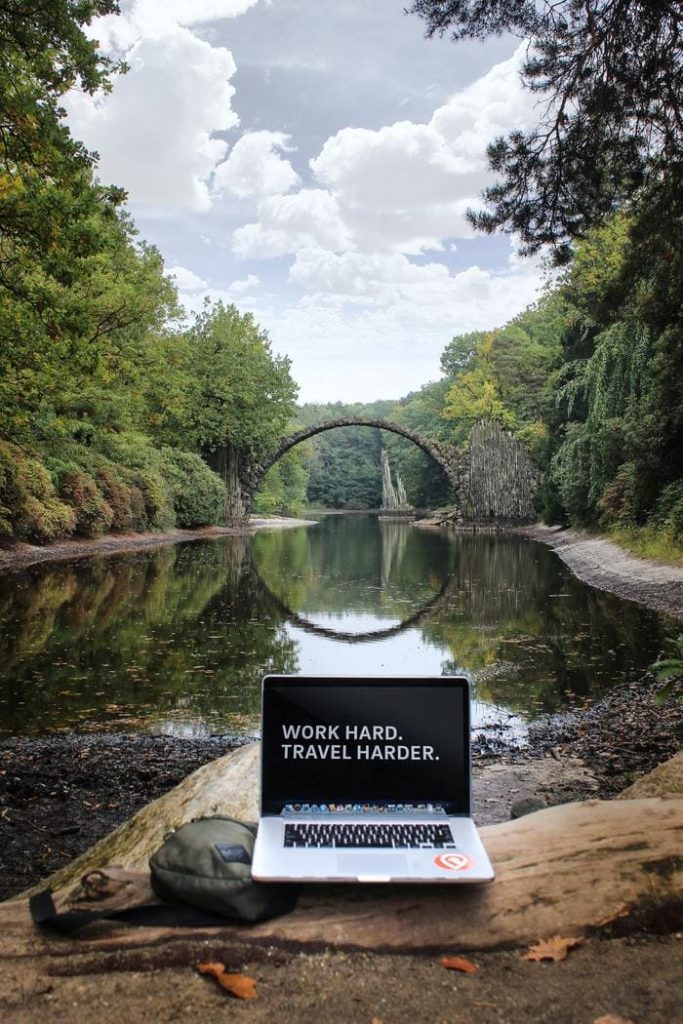
Start with Short Vacations
When you start with shorter vacations it’s just a way for you to test run and know how productive you can be in the chosen location while on vacation or staycation. This will help you get to know the localities, the circumstances and cultural and economic differences you encounter. See if you can work well with them. If not and they mainly disrupt your work and life, it may not be the best location for you. You can use those insights for your next trip.
Finances and Insurance
As a digital nomad traveller, you have to have your finances and insurance in order. While travelling many unforeseeable things can happen, which you should put into consideration, to make sure your debts are limited, and your sources of income are steady plus your insurance cover is sufficient for everything you do. You may also want to consider insuring your work equipment, if it is very expensive.
Packing your Suitcase
Nomadic travelling entails learning how to live off a suitcase, so that all you need is always in just one handy luggage piece. Since it’s really expensive to move around with all of your belongings, you have to minimize what you carry about. Check out some eco-friendly products that help you reduce waste on the greenlivingblog.org.uk while being light-weight and handy in any situation.
Get to know a Place for a While
It is advisable to explore communities properly and not just pass through quickly, if you like a place. After you have established that you can live and work there, you should familiarise yourself with the culture. Being a nomad doesn’t mean you have to be on the move constantly, especially when you find an inspiring location where you feel home. You may find like-minded people and connect with others that can benefit your online venture. And you can contribute something to the local community there such as offering training or anything else your skillset provides.
How much will it Cost to Travel?
The cost of travelling is based on the country you are going to and the currency value. Some have a high cost of living while some have a low cost of living in relation to your income. The places that have a low cost of living mainly within South East Asia or some remote islands, will be desirable while you earn a good income in a stronger currency like the British Pound, Euro, USD or AUD. You will obviously spend far less here and save money. Staying in one place longer would make you spend less unlike when you are travelling around. Create a realistic budget and work towards it, research affordable accommodation, local markets etc. to keep your outgoings down. It’s difficult to estimate spending, but you can find out the national minimum salary in a country and based on that work out how much money you’d need to get by in this location.
Best Places in the World to Work Remotely
As much as remote work allows you the flexibility of working from anywhere in the world, the location is essential. Choose a location that aids your work. Pay attention to the internet connection, cost of living, security, and how much it inspires you. Also, consider the infrastructure like the availability of co-working spaces and transportation.
The following recommended travel destinations tick all these boxes for digital nomads and should therefore definitely be on your checklist:
Canggu, Bali
Ranked by Nomad List as the best location for digital nomads worldwide, Canggu, Bali is the ultimate place for you to work remotely. The city comes with ideal weather with an average temperature of 29 degrees Celsius all year round, affordable cost of living, and super speedy internet. You are also presented with activities for your enjoyment after work such as wild water rafting, wind surfing and Balinese cooking classes. The popularity of Bali among the digital nomad community allows you to meet like-minded people to collaborate with on projects or share living and working spaces. BUT: Indonesia and Bali have unwelcoming visa policies and no digital nomad visa that leave many remote workers and freelancers living a semi-legal existence in the country.
Chiang Mai, Thailand
Watched “The Beach”? Then you know what we’re talking about. With one of the most expansive beaches in the world, Thailand is great for those looking for adventure. The best place to stay in Thailand is the outskirts of Chiang Mai. The area is tucked away in the mountains for a peaceful working environment. It is also easily accessible through road and air transport. Meals costs around $1 in the city which makes it quite affordable. To blow off steam, you can get a Thai massage, or go out to play with elephants or trek the jungle. Thailand doesn’t offer a digital nomad visa yet, but the government demands remote workers to get a work permit. To check if you fall into this category, check their Thai Embassy Website where you can also find the link to apply for a work permit.
Cancun, Mexico
Mexico is a digital nomad paradise. It offers the high life with a wide variety of activities. Whether you are looking for extreme water sports, jungle excursion, or some good food, you will have it all here. Cancun has well-equipped co-working and living spaces, and ideal weather and will expose you to an international community great for networking. Mexico offers a long-term visitor program, via the Mexico Temporary Resident Visa, which allows you to live and work in the country for up to four years, but Mexico has a minimum income requirement for these Temporary Resident visas, which is currently circa $1945 USD per month in gross income, with at least six months of proof.
Bermuda, Caribbean (UK overseas territory)
Staying with the tropical theme here, the famous island of Bermuda is also offering paradise to digital nomads for an annual fee of $263 per visa. Like Dubai, Bermuda requires you to clearly demonstrate current employment, and getting some basics like health insurance coverage. The remote work visa applications are live and once approved, visitors are allowed to come and go as they please, for the duration of one year. Tourist visas have also been extended from 90 to 180 days, but the remote work visa will give you more flexibility. So, if you’re after white sandy beaches, pure luxury and cocktails by the pool, this is for you.
Dubai, United Arabic Emirates
Dubai has launched a one year ‘remote work’ visa program, which requires you to show a minimum income of $5,000 per month and proof of company ownership, but it will allow visitors access to healthcare, internet, utilities and all other benefits of being a local in the UAE, while working remotely. If you are in employment, you’ll need a letter from employers for at least a year to take part. There’s a $287 fee, and you’ll need to get a year of healthcare cover to be considered, but if you really love hot weather, sand dunes and luxury temples then it will certainly be a worthy investment, especially as you’ll be able to connect with numerous international expats.
Tallinn, Estonia
Estonia has been building a positive reputation among digital nomads with e-residency options and fantastic technical advances even though it’s not a tropical destination that’s for sure. But if you’re more a fan of history and culture then you can take historic city tours or do wine tasting and hiking is also recommended here. They offer a ‘DNV’, Digital Nomad Visa, to help travellers working remotely, settle. Whether you are working remotely for a foreign company or as a freelancer, with this visa you will be able to live and work in Estonia for a year without any worry. You can read more about what this country has to offer in the start an online business in Estonia guide.
Madeira, Portugal
Madeira is quickly beating Lisbon as the favourite nomadic travel destination, especially as it’s known as the ‘Hawaii of Europe’. The island of Madeira has launched the first digital nomad village with free services to connect nomads with local services and rentals. And if you ever fancy a city experience every now and then, you can hop over to enjoy incredible seafood, hill climbing, and the popular festival culture there.
Some European countries are offering their own digital nomad visas, but the EU is now also offering the ETIAS authorisation for Europe which will allow eligible non-EU citizens to travel across the Schengen Area for up to 90 days at a time. The difference to a travel visa is they are allowed to work while traveling, as long as they do it independently and remotely. To check the fine print and eligibility check their aforementioned website.
Barbados, Caribbean (independent island country)
This is the true jewel in the crown so if you’re looking for ultimate luxury, Barbados is the place to be. You can have it all for one year with the Barbados Welcome Stamp. However, it’ll cost you! Barbados charges a visa fee of $2,000 for individuals or $3,000 for families, for the right to live and work remotely on the island without any grey areas and income tax, plus an annual minimum income requirement of $50,000. Visa holders are allowed to go and come back as they please during their visa period, once they’ve entered. Better get your designer sunglasses ready!
For more secret travel destinations for digital nomads read the Belgrade for Digital Nomads Guide and the Digital Nomad Visa for Croatia Guide.
Keeping Track of your Expenses while Traveling
A new destination means new places to visit and things to buy. Without a solid financial plan, you can find yourself running out of money. You, therefore, need a plan to ensure you have the right living conditions throughout your stay.
The first step towards tracking expenses is by determining the essential needs during your stay. First, you have to cater to travelling expenses. Look for the most affordable airlines and discounts if available.
The next step is to consider the cost of the co-working and living spaces. Most destinations provide co-working spaces with a reliable internet connection and a conducive working environment. The best way to save on the cost of living spaces is by using shared spaces. Afterwards, set aside enough money for food and exploring the new destination.
One of the most important, yet least covered expenses by most remote workers is healthcare insurance. Good health is a must throughout your travelling escapades. Most people are also prone to getting ill when they tour new regions. You are better off taking an international health insurance cover before starting your journey. The cover comes with comprehensive medical benefits like wellness and routine checks, serious illness, chronic conditions, and other treatments. Now that you travel a lot, travel insurance plans will protect you from lost luggage and any other travel inconvenience.
The equipment to use is also another expense you must incur. The type of material determines your quality of work. That is not to say you should splash millions on the high-end gadgets even if you cannot afford it. Consider getting a mid or low-range device when starting and upgrade later after you are established.
To help you track your expenses, there are several mobile apps and tools to use. Nomad Budget app is one of the apps that enable you to avoid overspending. It allows you to create a spending target and watch your expenses. Work From is another app that provides a comprehensive list of places where you can work from in any location. It gives you a database of co-working space details to help you decide on the most cost-effective ones to choose.
Hopefully now you feel ready to pack your bags and start your nomadic journey. Before you embark on your adventures, we advise you to look into some of the disadvantages too to avoid disappointment.
Disadvantages of the Nomadic Lifestyle
While it might seem all grand and glam touring the world and getting paid, it is not a 24-hour party. It comes with its fair share of disadvantages that you have to be braced for. Only become a digital nomad if you are ready to face the cons. They include:
No guaranteed Income
Working online while travelling the world means no guaranteed income. Some months you might have more than enough clients, while some months you have none. There is also the possibility of working, and the client rejects your work or fails to pay. Sometimes you create a product but don’t make enough sales to cover your ongoing costs.
To avoid getting caught up in the rich-broke cycle, only get travelling when you have enough savings. Follow our tips on diversifying your income sources by learning and perfecting more skills and offering more products and services.
Loneliness
Travelling the world endlessly means you don’t get to see friends and family as much as you want. This can affect your concentration levels and ability to enjoy new experiences. Even though you can interact with people via Face timing and WhatsApp video calls, there is still a missing personal and social touch.
To overcome the loneliness, make time to go back home when you can. Make the return dates coincide with other activities and celebrations to help you meet several people at once.
Endless Work
Anyone starting the digital nomad lifestyle must be ready to work hard. Unlike the 9-5, working online does not come with weekends and holidays off. You are always looking to work as much as you can to earn more and settle seamlessly. Once you have settled in the new environment, you can create a working routine to factor in both work and pleasure times. To help you through the work, consider outsourcing when you have extra work and spend your time on worthwhile activities. Consider digital minimalism to limit your digital consumption and develop routines that help you focus on the main tasks without getting distracted on social media, YouTube or online chats.
No Fixed Workplace
While the lack of a fixed workplace is the allure of the digital nomad lifestyle, it comes with its challenges. As much as you might work from everywhere, you still need reliable internet connections, power sources, and comfortable work and relaxation spaces. All these might not be available in your travel location, thus hindering your productivity.
If you don’t want to get caught up in a place where you can’t work, research beforehand to ensure the area you are headed has reliable internet connections. You are also better off working in dedicated co-working places.
Visa Restrictions
Most countries have visa provisions before you can visit as you saw in the travel section. You also need to seek working permits to work safely in the country. Tax is also another concern that various countries approach differently. To ensure the right procedure, contact the country’s local embassy for guidance before you travel. Also, look for information from online sources and consultants.
Now you are clear about what a digital nomad is and how you can become and remain one as well as travel confidently as one, we thought we’d share some examples of successful international digital nomads, so you see how individual digital nomadism is.
Top 5 Digital Nomads to Follow for Inspiration
Female Empowerment Nomads
Women are thriving as digital nomads and many share how they are empowered through their blogs and remote work. Sydney Ferbrache aka Divineontheroad does this via her van. She has built up a used van and travels around in it, sharing solo traveller tips, DIY tricks and advice on how to earn online. She even has her own coffee brand.
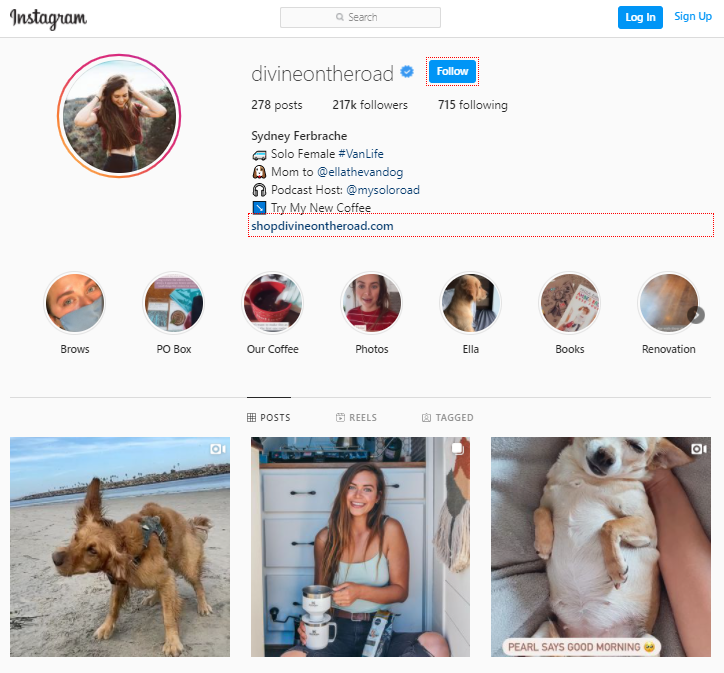
Her intimate and insightful images that document her van life prove very popular not just on her blog, but also on social media where she has accumulated a strong following of over 200k on Instagram alone.
Budget Travel Nomads
For people traveling on a tight budget the Poor Traveler Blog is fantastic. The two bloggers Vins and Yosh showcase destinations around the world, even top expensive and luxurious locations, with very useful information and tips on how to save and bargain there. For every destination featured on their blog, such as Monaco, one of the most expensive parts of Europe, they provide a complete itinerary to make savings with travel, food and accommodation. They share relevant links and resources and of course, photos, but not all of them are theirs.

Here you can see how the focus of your blog dictates the format and design of it. Clearly it works for them with 777,000 Facebook followers alone and a successful YouTube Channel with nearly 12,000 subscribers.
Sustainable Ecotravel Nomads
You can follow the Crowded Planet digital nomad team Margherita and Nick via their blog crowdedplanet.com and learn more about ecotourism and ecotravel. See how they document their travel tips and insights in different categories and how they use images strategically so that the reader immediately gets an idea what their blog is about. On their about us page they explain the importance of their photos: “Photography is a very important part of our blog. We try to publish only professional photos, taken by Nick or other photographers or photojournalists. Nick specialises in wildlife and landscape photography – have a look at his Flickr photostream or our Photo Stories section to get an idea of what we do, or just have a look around the blog. All pictures are ours unless otherwise stated.”
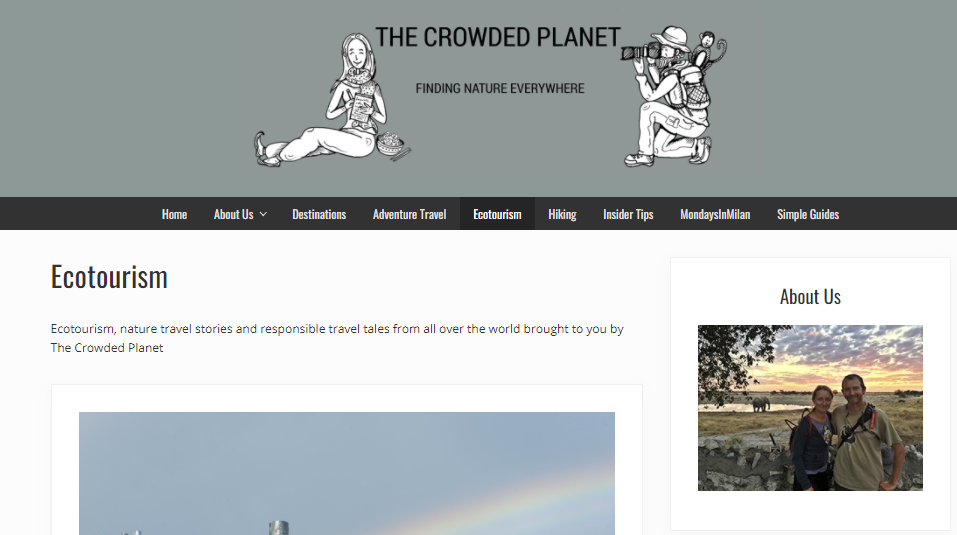
This highlights the importance of authentic imagery on a digital nomad blog and how travel documentation is a huge part of digital nomadism. And this strategy seems to also work on their Facebook presence where they have amassed a following of nearly 13,000 followers.
LGTB Community Nomads
The Every Queer Blog focuses on lesbian women and activism around their lives. It does document lesbian travel, but this is not the main point of discussion. It rather tries to advise on topics around the queer community such as best books for lesbians, successful lesbian entrepreneurs, top LGBT photographers and much more. It is very versatile but doesn’t focus on the digital nomads themselves like most of the other digital nomad blogs mentioned here.

Well, their strategy seems to work as you can see on their portfolio with many high-profile publications and a good following on social media of 31k, they are getting excellent exposure on the web.
Inclusive Travel Nomads
The Simply Emma Blog highlights the life of wheelchair-bound digital nomad Emma with a core focus on accessible travel in the world. She shares challenges and obstacles she comes across on her journeys in hotels, places of interest, public spaces and much more and offers tips and advice on how things can be improved for the disability community around the globe.
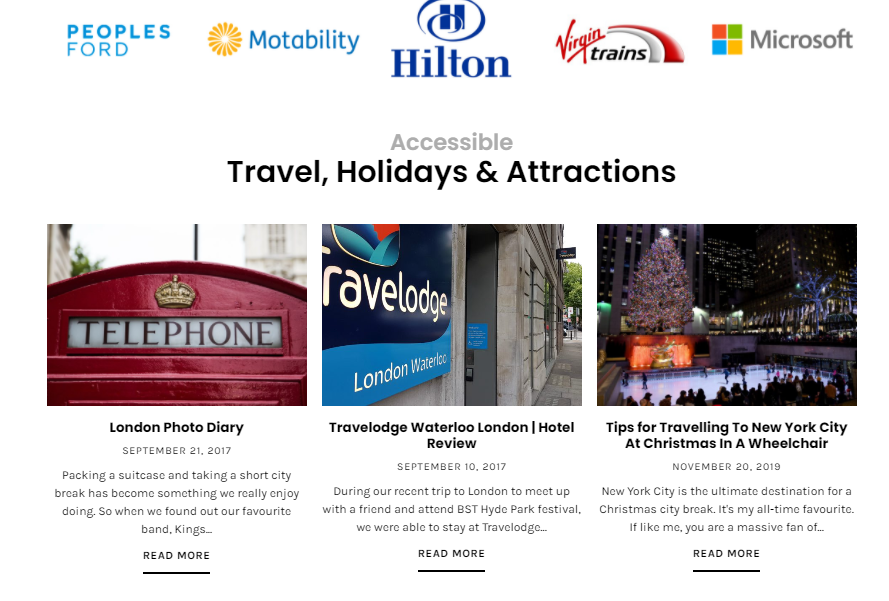
She mainly uses images of herself in her wheelchair to showcase issues and solutions. With nearly 2k followers on Instagram this visual accessibility to her life proves the way forward for her.
Can you recognise a pattern here? Looking and comparing these top digital nomads and influencers it becomes clear what matters the most to make it big online: PERSONALITY!
Become a Digital Nomad Superstar
As we have mentioned in the beginning of this guide, if you identify your talents, interests and passions and combine them with the skills to learn and online job and freelance opportunities you are on your best way to online and nomadic success.
By following the recommendations and ideas in this guide, you should be able to utilize your unique personality to plan your life and career as a digital nomad. Designing your very own digital nomad journey to make it enjoyable, fulfilling, engaging and meaningful can completely change your life.
This is what happened to Fernando and Manuela as they both moved from jobbing to full-time 9-5 work to digital nomadism. And in this guide their examples as well as the examples of other successful digital nomads clearly show that anyone can make a start as a digital nomad no matter their background, ethnicity, demographics, or circumstances.
All it takes is the right mindset, self-belief and vision for your very own digital nomad identity and journey. And don’t worry, this doesn’t have to be clear from the start. Follow your instinct as you know yourself best. Your passion and motivation will lead the way. Plain sailing!
Author Profile
- Blogger and Educator by Passion | Senior Online Media & PR Strategist at ClickDo Ltd. & SeekaHost Ltd. | Fascinated to Write, Blog and Teach, I have completed a journalism summer course at the London School of Journalism and manage various WordPress blogs.
Latest entries
 Digital EconomySeptember 20, 2023A Guide to Digital Economics and the Rise of Digital Entrepreneurship
Digital EconomySeptember 20, 2023A Guide to Digital Economics and the Rise of Digital Entrepreneurship CareerJanuary 28, 2023How to Become a Digital Nomad? – (The Ultimate Go To Guide)
CareerJanuary 28, 2023How to Become a Digital Nomad? – (The Ultimate Go To Guide)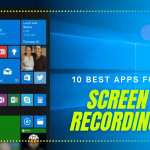 BloggingJuly 23, 202110 Best Apps for Screen Recording to enhance your Blog & Social Media Content
BloggingJuly 23, 202110 Best Apps for Screen Recording to enhance your Blog & Social Media Content CareerMay 12, 2021Get a Private Blog Network Specialist Certification to build monetizable Online Properties professionally
CareerMay 12, 2021Get a Private Blog Network Specialist Certification to build monetizable Online Properties professionally




